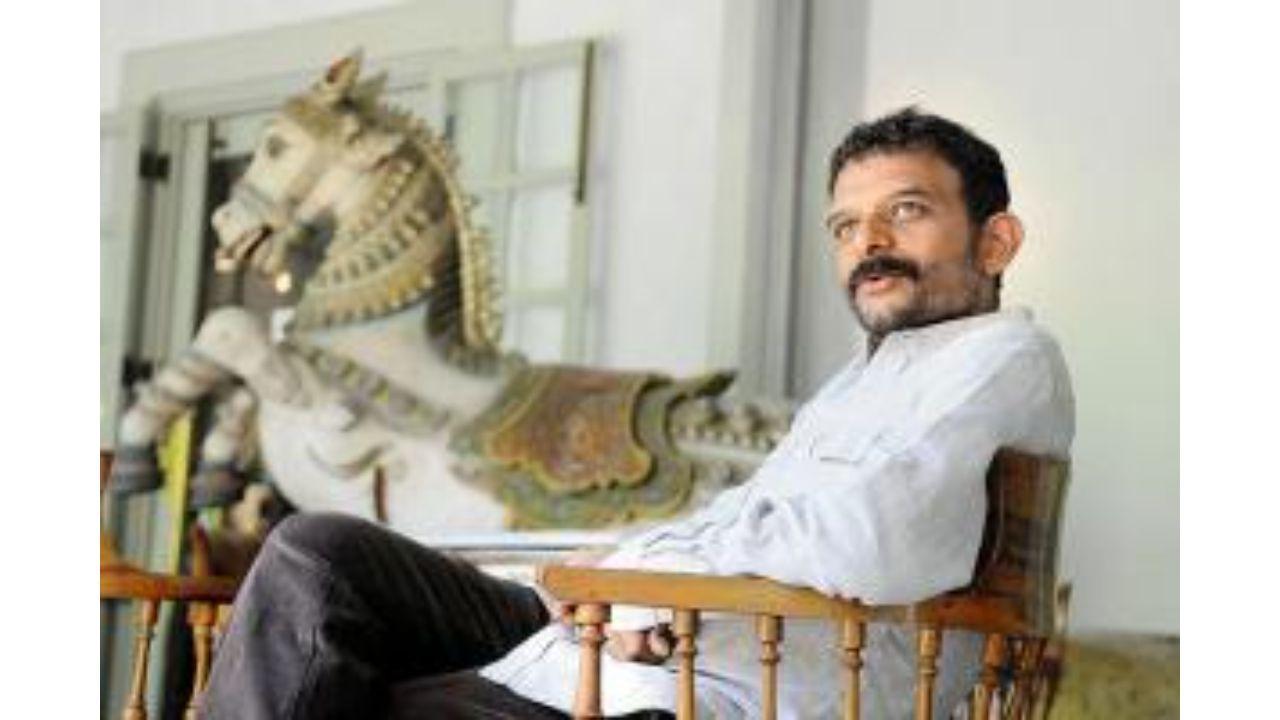Babasaheb Ambedkar gave him the intellectual and political tools to address discrimination, says TM Krishna. The vocalist and activist released a new song describing the Indian social reformer — the first of its kind within the realms of Carnatic music — in collaboration with writer Perumal Murugan.

TM Krishna | Photo: Mid-day file pic
To mark the 130th birth anniversary of Dr Babasaheb Ambedkar, Chennai-based Carnatic vocalist and activist TM Krishna shared a song celebrating the social reformer and thinker’s ideology and influence. The song, set in the rhythmic ‘kavadi chindu’ (or ritual couplet) form, was released on his YouTube channel on April 14. The words sung by Krishna were written by noted author Perumal Murugan.
ADVERTISEMENT
Ahead of the release, Mid-day.com got in touch with the vocalist to understand the idea behind this effort, and the effect Ambedkar has had on his life and work.
Here are excerpts from the interview:
What is the idea behind the Kavadi Chindu on Babasaheb Ambedkar?
Perumal Murugan wrote this song a few months ago. In March this year, as requested by Murugan I set it to the Kavadi Chindu musical format. Kavadi Chindu is a musical form associated with a certain ritual undertaken by devotees of Lord Muruga. But this form has also been used to express many other political, social and religious ideas. We decided that it would be ideal to release it on April 14, Dr Babasaheb Ambedkar’s birthday.
In your tweet, you mention this would be the first song on Babasaheb Ambedkar that will become part of Karnatik concert repertoire. Please explain the significance of such an effort for the art form.
Karnatik Music, in fact most of Indian elite culture has not embraced Ambedkar. Our text books have also failed him. Unfortunately, there can be only one reason for this, the casteist nature of our society. This needs to change urgently. We live in precarious times, when everything Ambedkar built for India is under threat. Enabled by divisive, destructive narratives and the politics of lies, modern India is under siege. Ambedkar must become central to our socio-political imagination. He was a rare combination of a philosopher, constitutionalist and activist. He brought into structure and form the conceptual framework of ethical living. The future of our country depends on understanding the questions Ambedkar brought on to the table. Ignoring them as we have done in the past will only lead to the annihilation of justice.
Please tell us about the collaboration between you and author Perumal Murugan. How did it come about?
Perumal Murugan and I have been working together for over five years. When we first met, he gifted me a collection of his poems and asked me if I would be open to singing them. This led to a close friendship and collaboration. Together, we have brought on to the Karnatik concert stage about 20 compositions that address many contemporary themes. So-called classical art forms fortify themselves in castles and refuse to deal with reality. Murugan and I have tried to change this. For the first time in Karnatik music’s history, we have presented compositions on manual scavenging, the struggles of farmers, the violence against women and have responded to the vandalism of statues etc. We have also imbued Karnatik music lyrics with dialects of communities that have been kept away from this Brahminical art form. Our work continues.
What kind of influence has Babasaheb Ambedkar had on you?
Like in many Brahmin homes, Babasaheb Ambedkar was not even a tertiary part of our growing up. It was Gandhi all the way. This changed much later in life. Ambedkar has given me the intellectual and political tools to address discrimination. Even more importantly he has taught me, a person of caste privileges the limits of what I can, should do. I am still learning.
 Subscribe today by clicking the link and stay updated with the latest news!" Click here!
Subscribe today by clicking the link and stay updated with the latest news!" Click here!






